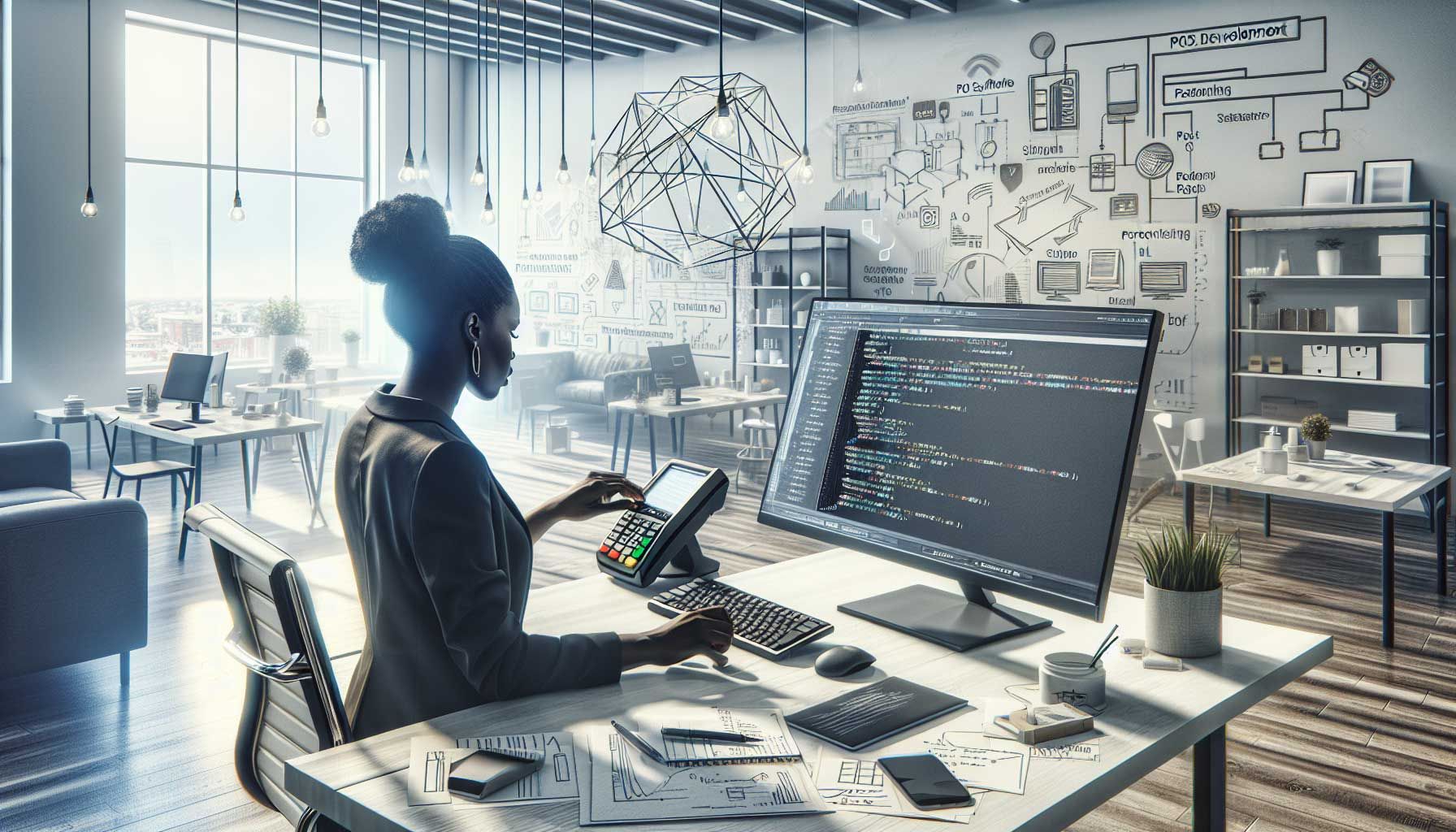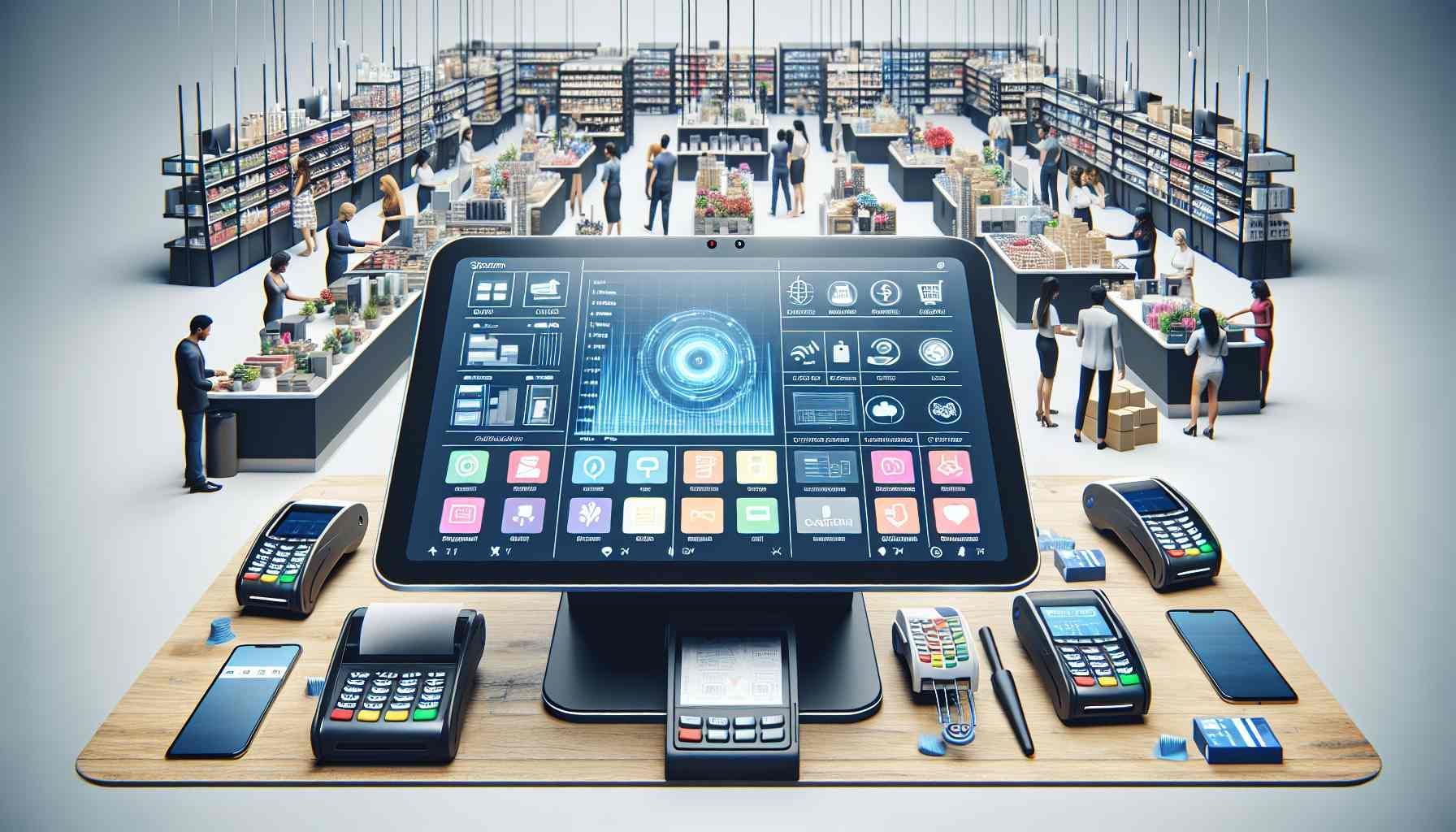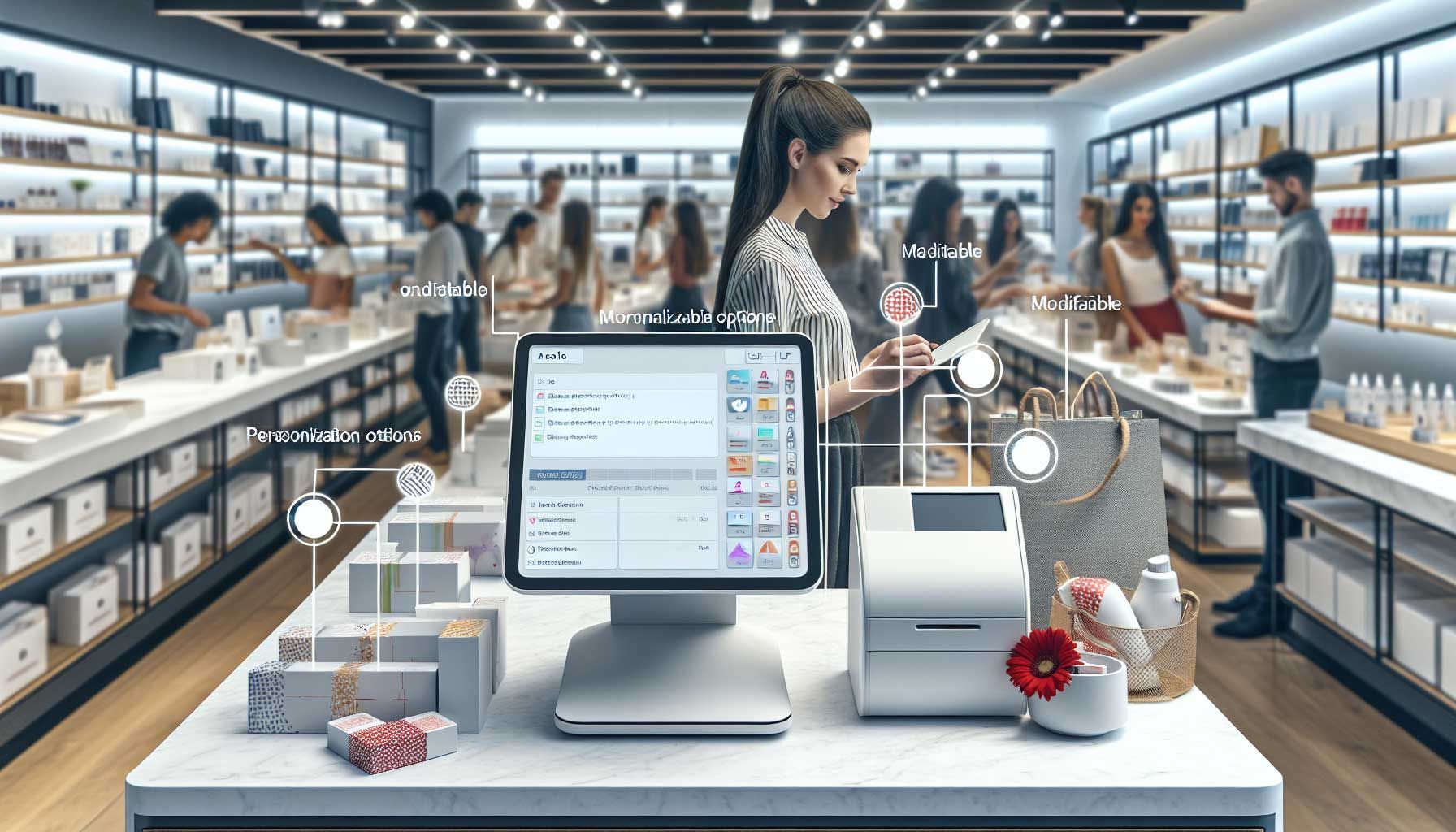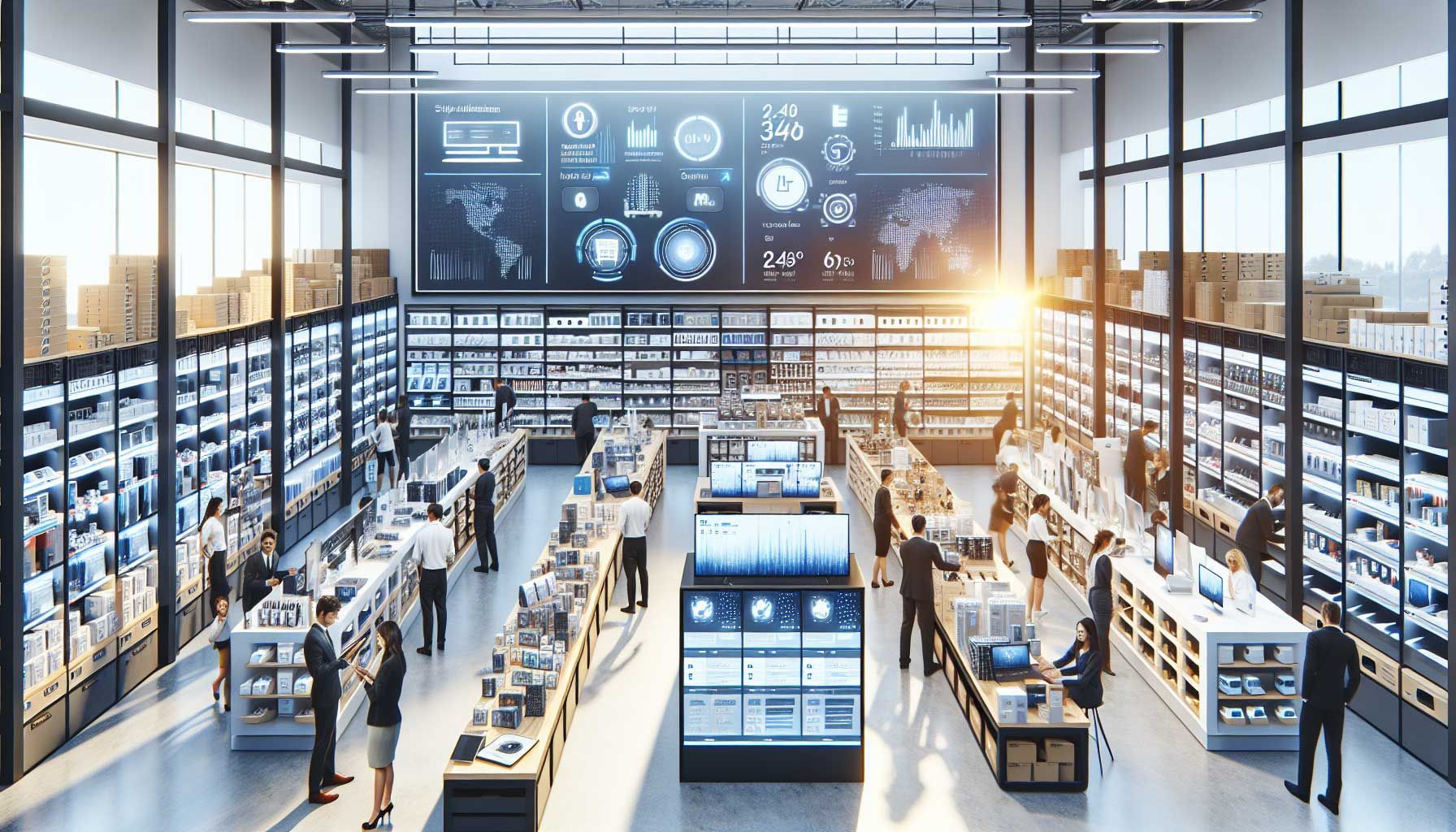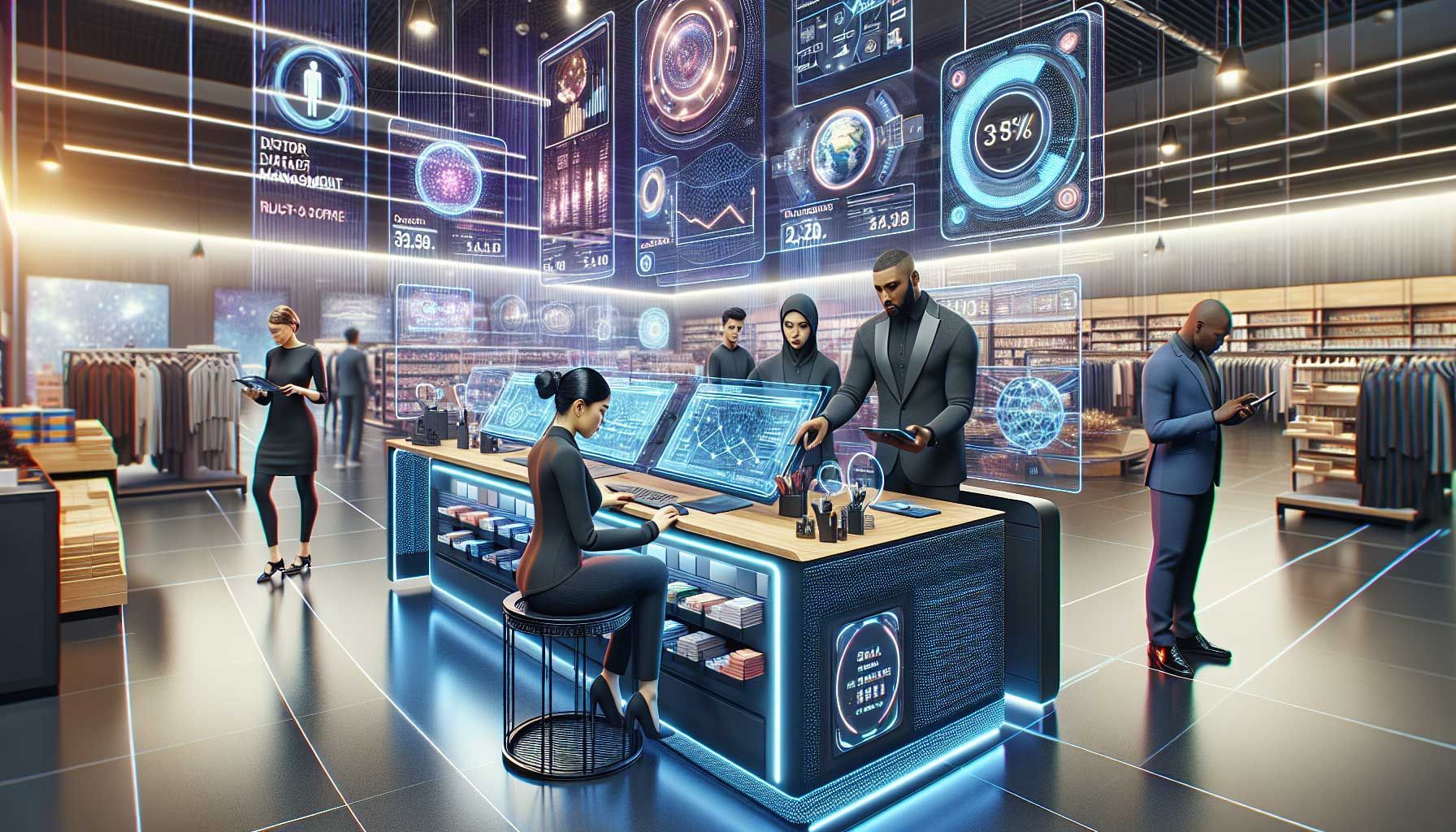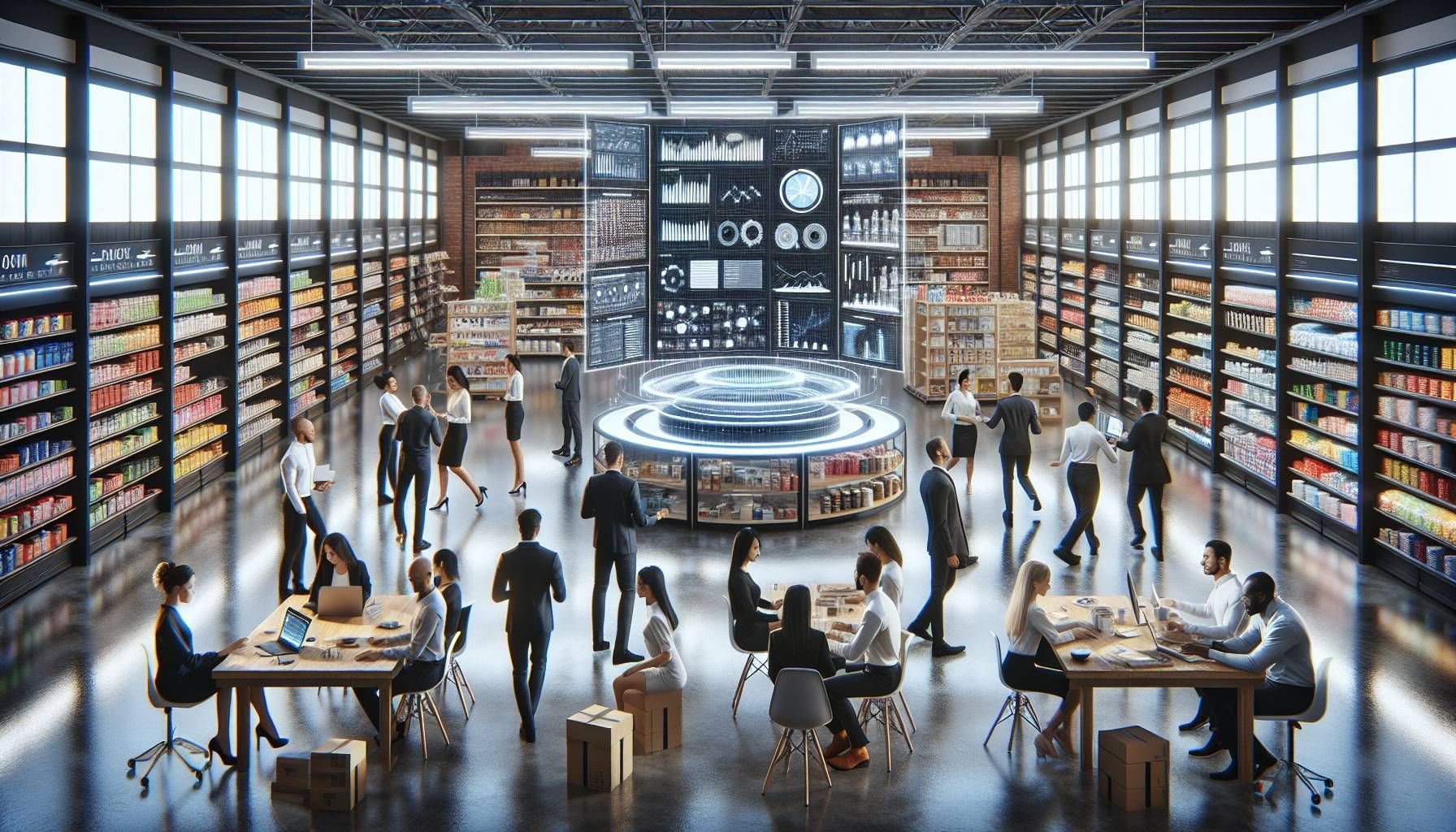12 Tips on How to Approach Customers in Retail – Endearing Yourself to the Customer
Importance of walk-in customer approach at your retail store
The retail industry is not for the faint of heart. Competition is fierce, margins are razor-thin, and customer expectations are high. The key to success in retail is customer approach of store visitors.
Customers are no longer satisfied with a one-time purchase experience. They want to feel like they’re valued and appreciated every time they come into the store. If you want to make your customers happy, it’s important that you make them feel welcome and valued every time they come into the store.
Customer approaches can vary depending on the situation and the individual or group involved, but they generally fall into three categories: formal, informal, and mixed.
The best tip we can give you about below process: practice, practice, practice and don’t be scared to fail!
ad
How to approach store visitors:
- Smile
- Friendly voice
- Welcome store visitors and introduce yourself
- Ask the walk-in customer how they are doing
- Ask about their needs
- Deal with negative response
- Engage and don’t give unasked advice
- Ask for feedback
- Upsell or close
- Checkout
- Offering more
- Connect digitally
Last but not least, we will answer some FAQ questions at the bottom of this post.
1. Smile to walk-in Customers
It is a well-known fact that people buy from people. But it is not always possible to have a personal interaction with your customers directly. In such cases, you can use your smile to create an emotional connection and making them feel welcomed and wanted.
A smile can help make your customers feel welcome and wanted. A smile triggers the release of dopamine in the brain which makes them feel good and happy. It also releases serotonin that improves mood and reduces stress levels in the brain. So, it is important to greet your customers with a warm and welcoming smile when they enter your store or business premises. Research shows that this is even more powerful than saying ‘Hello’.
ad
2. Friendly voice
Use a friendly voice to make people feel even more welcome. It is a great way to improve the customer experience, as it helps shoppers feel more at ease and confident about their decisions.
In the first few seconds when a customer walks in, he tries to conclude whether it was wise to enter. That is why it is important to confirm this feeling as soon as possible.
So the use of a friendly voice in the store goes beyond the traditional greetings. It is also used to provide information and help shoppers find what they are looking for. A friendly voice can be used for anything from providing directions to answering questions about products on the shelves.
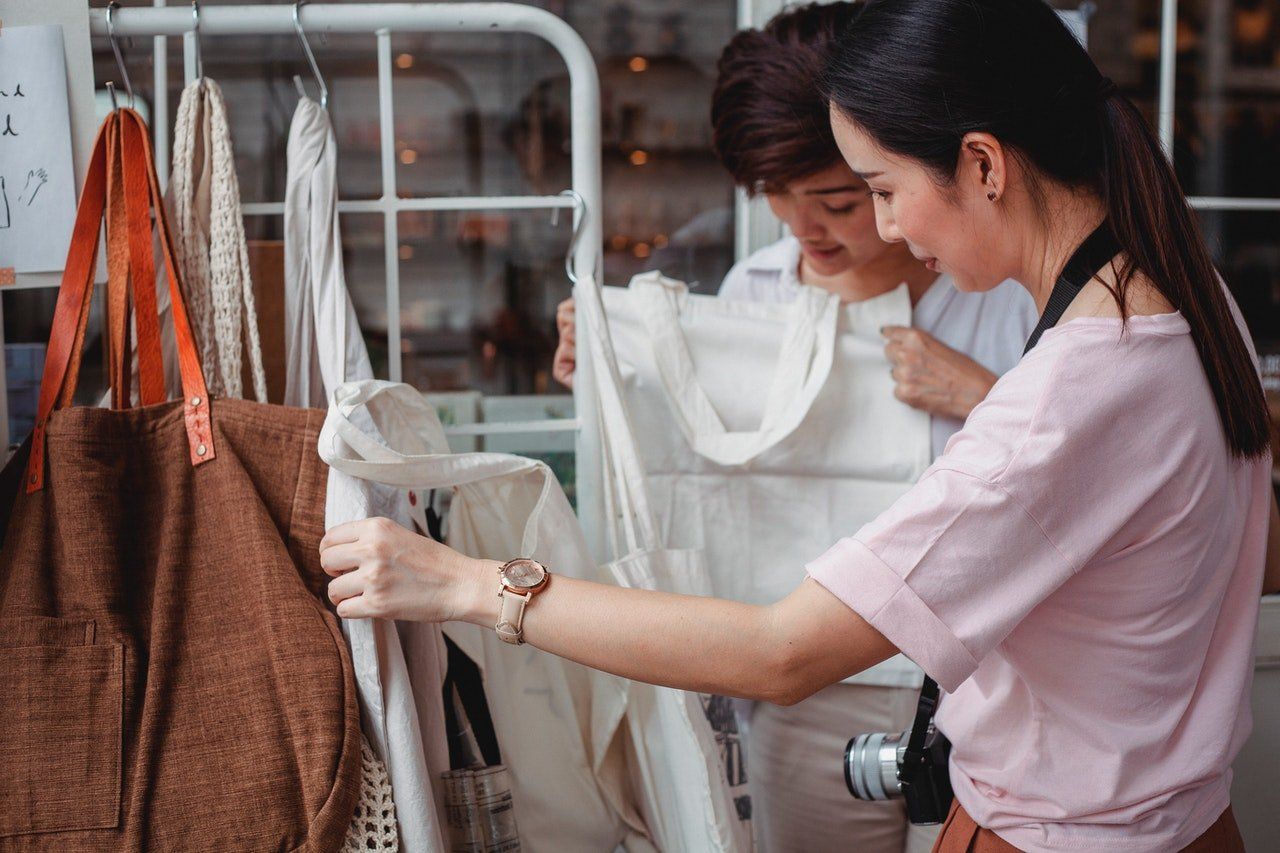
3. Welcome store visitors and introduce yourself
The customer service approach starts with the greeting in addition to a smile and friendly voice.
For example: Hi, my name is George and welcome to Boutique Aqua!
It is important to introduce yourself and say the store name to the customers. This will help them think about where they are and feel welcome. Furthermore, this makes them feel more inclined to shop at your store.
Do you recognize the customer? Don’t forget to name this. By doing this, you diminish the personal relationship. You can also ask if they are there for the first time.
4. Ask the walk-in customer how they are doing
“How are you?” is a phrase that we often hear in our day-to-day lives. It’s a simple question that can have a big impact on customer loyalty and satisfaction. By asking this question, you make it clear that it’s about the customer and not your goal to sell. It is important to sell yourself first before promoting a product.
The customer-centric attitude of the retail workers is what is making the difference in their excellent behavior. The retail industry has been going through a tough time with the rise of e-commerce and the digital transformation. But it is not all doom and gloom as there are some retailers that are still doing well.
The most successful retailers have been able to adapt to this new situation and they have been using innovative approaches to try and win back customers. One such approach has been investing in their employees who are now seen as a key asset for success. Retailers like H&M, Zara, Nike, and Adidas have invested heavily in their workforce by training them on how to be more customer-centric and by providing them with better working conditions so they can be more productive. This investment has paid off.
ad
5. Ask about their needs
Like Mahatma Gandhi once said; “A store visitor is not dependent on us, but we are dependent on him. He is not an interruption in our work, but the purpose of it. We are not doing him a favour by serving him, but he is doing us a favour by giving us an opportunity to do so.”
So ask what they are looking for and if you can help. What is the purpose of their visit? If you can provide the right solution, you will leave them happy and likely to return.
Therefore, retail workers should always try to have a conversation with their walk-in customers. This is important for maintaining the customer experience and making sure that the customer feels welcome. The most important thing that you need to remember is that the customer’s needs are your priority. You should always ask them questions about themselves or what they want so that you know how best to help them. Try not to be too pushy though because it can make them feel uncomfortable and unwelcome in your store.

6 . Deal with negative response
In most cases, when asking how you can help, the shop visitor will say he would just like to browse through your products. How to approach the walk in customer in that case? It could feel like a negative response , because you want to show and sell your items.
What to say when a customer says “I just like to browse”
So in this case the next step in approaching the store visitor, is by making sure you understand it and that you still offer to help. Therefore, don’t only say ‘OK’ or nothing at all. Say for example:
- I get it. I also like to browse. Just let me know when you need anything.
- Of course, I understand you! Just give me a sign when I can do anything for you.
- That’s nice! I will check in later to see if I can help you with anything.
- Great, take your time! That part of the store is our new collection and that part is our Sale selection.
- Alright, so you know my name in case you need anything right?
7. Engage and don’t give unasked advice
I get it, you are a huge fan of your own products. However, try to temper your enthusiasm. Never approach the store visitor by giving (unasked) advice. Even when he or she is asking for something, but especially when the customer is just browsing.
For example; the person holds a white sweater. Don’t just say we have that one also in blue and did you know that when you buy 3 pieces you get an extra discount? Instead, just smile and try to connect on a personal level. Maybe compliment them or offer something for free, like a cup of thee. For example; “are you from the neighboorhood / this city?” or “I really like your shoes.”
In most cases when a store visitor is not asking for advice, he is not ready to talk about your products with you yet.

8. Ask for feedback
Another way to connect with your walk in customer, is by asking for feedback. In this way you can show that his opinion is important to you. For example:
- What do you think of the colours of the new collection?
- We are thinking about changing the shop lay-out, what would you appreciate?
- Would you like it if we should also add more jewelry to our assortment?
Of course, keep in mind that you also need to value your customers’ time. Therefore, mostly stick to small talk.
ad
9. Upsell or close if your walk-in customer is ready
Upsells are a great way to increase your sales and make more money. There are many ways to upsell your customers. One of them is by using scarcity. Scarcity can be used in many different ways, for example, by telling them that they need to order now or the sale will end soon or that there is only one left in stock. Another way you can use scarcity is by telling them that they will get a better deal if they buy now instead of waiting for the price to go down in the future.
Other ways include showing them how their purchase would benefit someone else, like how it would help someone else become more productive or healthy or how it will boost your apperance.
With a closing technique you can make sure the customer is purchasing in your store. For example, you can offer customers the opportunity to purchase products at a discounted price or give them a coupon for future purchases.
You can also control the feeling without giving a discount with the ‘Yes’ technique. This lets your customers say Yes multiple times. For example:
- You like the blue one more than the white one? Yes.
- And you want to wear it this weekend? Yes.
- Shall I put it at the checkout? There is a good chance that the customer will also answer Yes to this question.
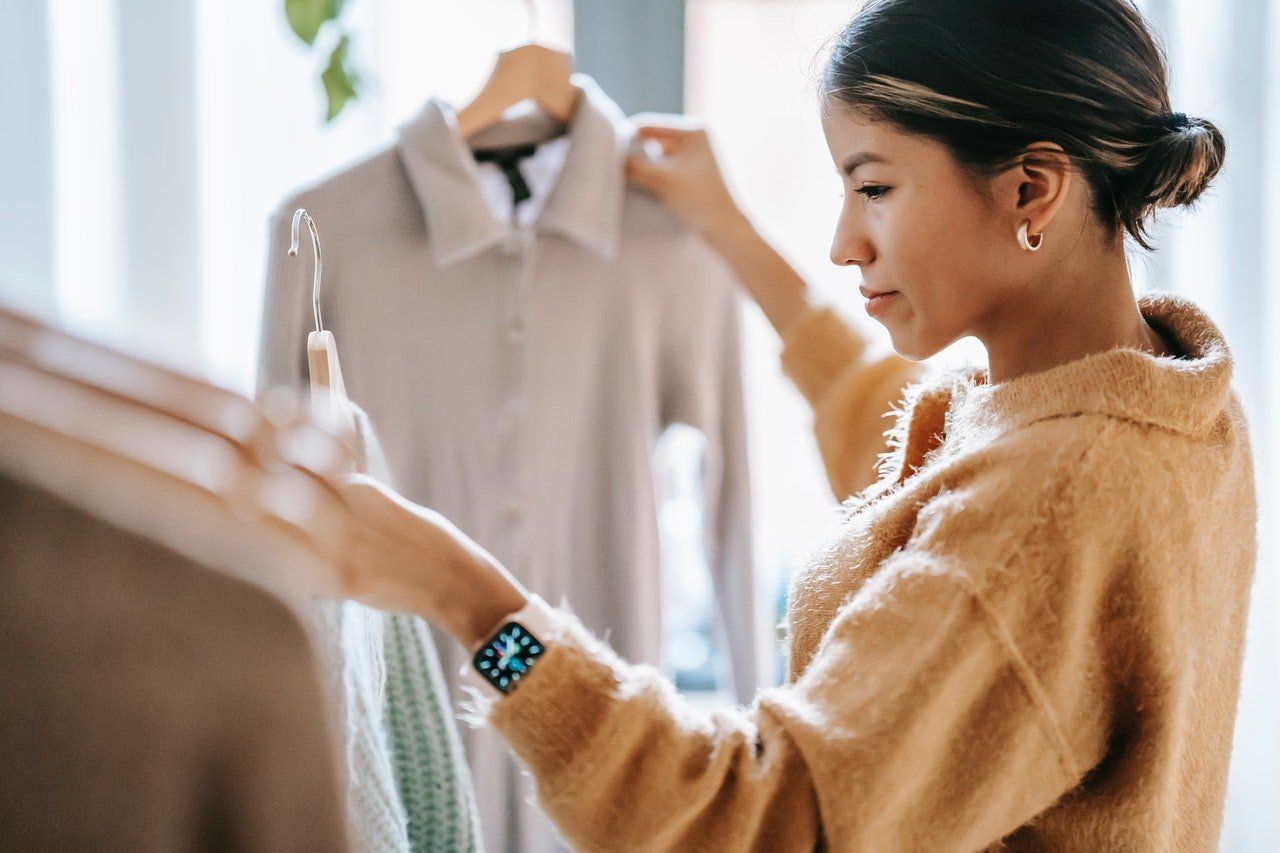
10. Checkout
In the retail industry, the checkout moment is one of the most important touchpoints for customers. This is where they can make a purchase and leave with their goods. However, it’s not just about the products on sale and how close they are to the customer. It’s also about how easy it is to pay and what they see at that moment.
A customer’s checkout moment is one of the most important stages of their journey at a retail store. It is the last stage before they leave and it must be designed to make them feel satisfied with their purchase.
There are various ways that retailers can design this moment to increase customer satisfaction, but here are some specific examples:
- It can be frustrating for customers when they are not able to find the checkout line or have to wait in a long queue.
- Retailers need to make sure that their checkout process is as seamless as possible. This includes having enough staff on hand, ensuring that queues are short, and offering self-checkout options where possible.
- When customers are satisfied with the checkout process, it can lead to increased customer loyalty and profits for retailers.
ad
11. Offer more
The moment the customer pays is the best moment for the retailer. However, for the customer it is often the least enjoyable moment. That is why it is important to provide the customer with an additional confirmation of purchase after payment.
For example, you can give an extra compliment about the purchase or remind him again of the reason for purchase. For example, “Have fun at the wedding next Friday.” if this was the reason.
Some retailers have started to offer a freebie at the checkout. The reason for this is to provide customer delight and a sense of appreciation. They also want to show their gratitude for the customer’s purchase.
The most popular freebies are chocolates, mints, or a small pack of tissues. For some retailers it is enough just giving out these items as they know that they have already made the customer happy with their purchase – and that is what matters the most.

12. Connect digitally
For a retail store to be successful, they need to know their customers. This includes understanding who they are, what they like and what motivates their purchase decisions.
So always ask whether they are already a customer and whether they are in the system. Offers some advantages, such as a loyalty points program. The main purpose of collecting customer data is that you stay in touch with the target group outside the store in this way.
Using tablets in store is one way to boost this conversion rate. Placing them on tables with an open webpage can allow customers to enter their details, for example after they’ve made a purchase or just entered the store. Employees can even promote this opportunity too.
Last but not least, you can also give a card with links to your Social Media profiles, so that customers are reminded to connect with you digitally.
FAQ
Here we briefly answer some frequently asked questions about this topic.
How do you welcome a customer in a retail store?
In retail stores, it is important to have a welcoming environment for walk-in customers. This can be accomplished by greeting them with a smile, introducing yourself by telling them your name and the name of the store and asking them what you can do for them .
What do you say to store visitors?
The best way to start a conversation with store visitors is by asking them what they think about the store, or what they’re looking for, or why they came in. It is important to connect with people on a personal level. This will help you understand their needs and serve them better.
How do you start a conversation with a customer in retail?
The best way to get the customer to engage is by smiling and getting close to them without being too invasive. In this way you will be able to create a connection with the customer and start a conversation.
How do you engage with customers?
The best way to engage with customers is by asking feedback. It keeps the conversation going and it offers an opening to ask about a customer’s needs. Ask open questions with what, who, where, why and how instead of closed questions to which the customer only has to answer Yes or No. In this way you cn offer a friendly conversation throughout their shopping experience.
How do you assist customers and approach sales?
The first thing you need to do is identify the customer’s needs. Find out if they want a specific product or if they have a general question about your company. If a customer is looking for a specific product, then it’s best to just assist them in the right direction without trying to sell it to them. And if it’s not available, try to offer that customer an alternative that will suit their needs instead.
Try to make the customer feel as comfortable as possible. Don’t make them feel rushed or pressured. The retail store should make sure that they are giving the walk-in customer enough time to look at the products and ask any questions.
ad

Bring your shop to the next level
Hi, I'm George and I like retail and technology. Therefore, my passion here at Retailgear.com is to provide you with reliable information to automate and digitize your store. You can find out what we can do for your industry through our menu. Also, feel free to check out this updated list of retail tools.
Get inspiration in your inbox to get more sales and store visitors with less effort.
Contact Us
Thank you for subscribing to our newsletter!
Please try again later.
More about your favorite subject
Discover latest posts
You can use, change and resell our complete solution whitelabel.
© 2022 All Rights Reserved by Retailgear
© 2024 All Rights Reserved by Retailgear | Terms and Conditions



